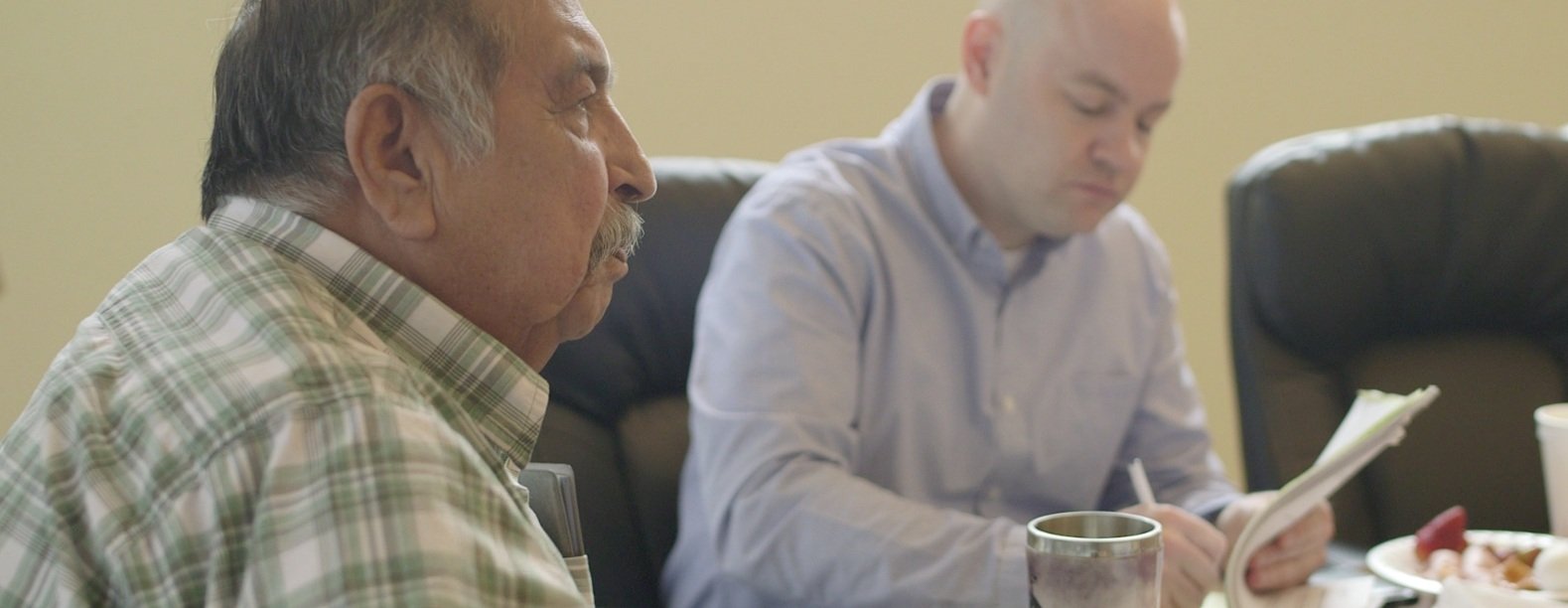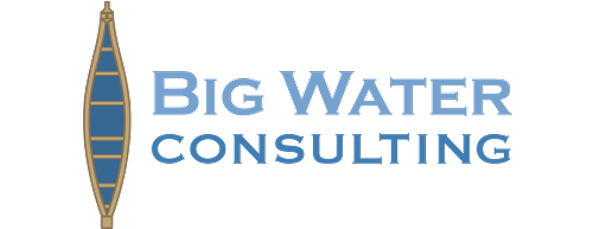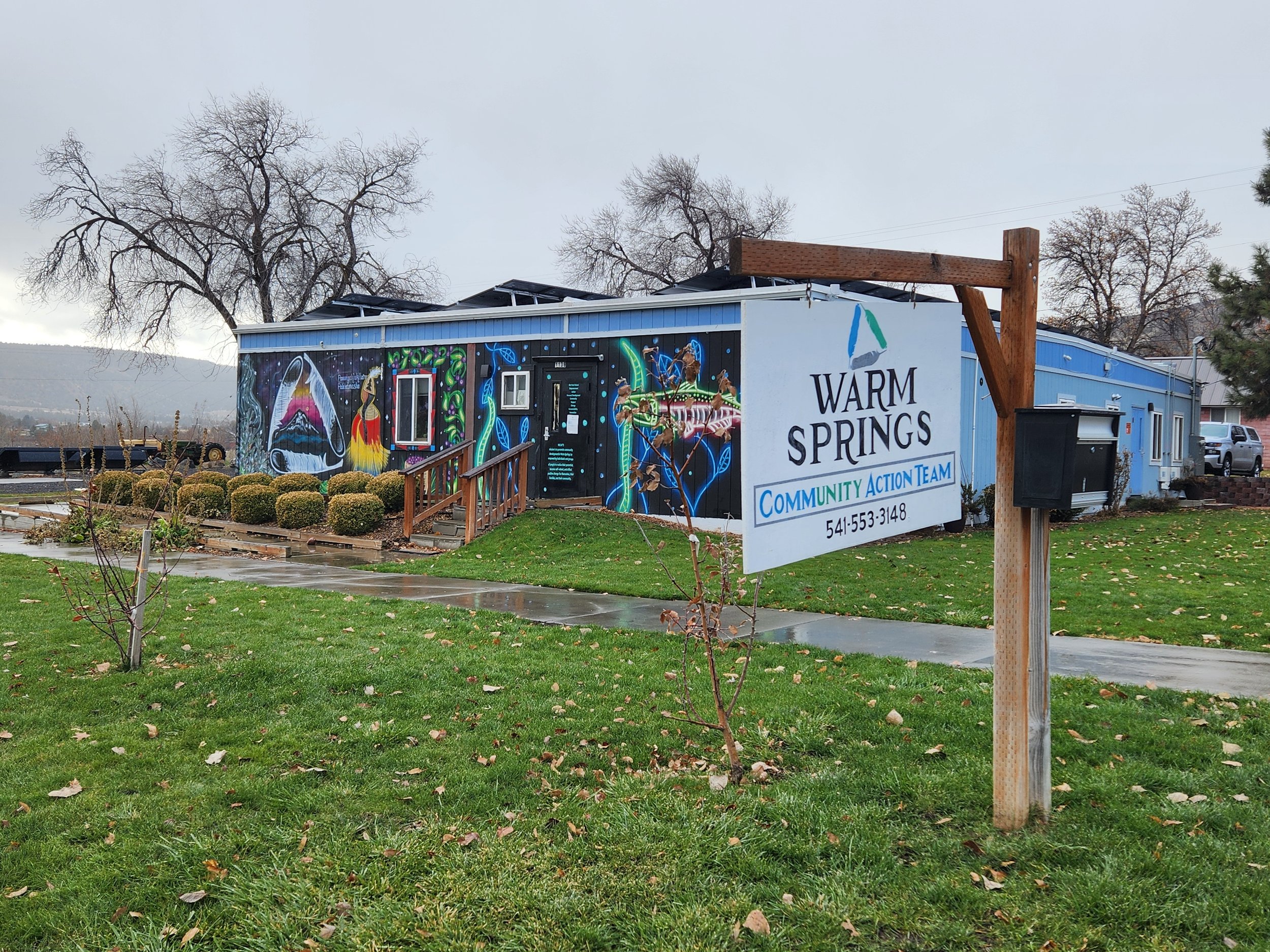
Highlights from recent projects help tell the story of how and where we work.
Visit our Gallery to see samples of specific deliverables. Use the search bar below to find projects in specific regions, covering certain topics, or with a particular tribe.
All Projects

Big Valley Rancheria Community Needs Assessment
Lake County, California
Big Valley Rancheria is home to the Big Valley Band of Pomo Indians, descendents of the Xa-Ben-Na-Po Band of Pomo Indians that have inhabited the Clear Lake area of present-day California for thousands of years. The Big Vallery Rancheria Community Needs Assessment seeks to gather data on the housing and other programming needs of Big Valley residents and Tribal members. The needs assessment will also inform renovations to rental housing being conducted by Sustainable Native Communities Design Lab at MASS Design, a Native-owned architecture firm.

Sicangu Wicoti Awayankapi (SWA) Homeowner Assistance Fund
Rosebud, South Dakota
SWA Corporation received an allocation of nearly $5 million through the US Department of Treasury’s Homeowner Assistance Fund Program. This pandemic-relief program supports homeowners in avoiding foreclosure and improving housing stability following the impacts of the COVID-19 pandemic.

Ending Rental Arrears to Stop Evictions (ERASE) Surveys
UNAHA received the Ending Rental Arrears to Stop Evictions (ERASE) grant from the National Low Income Housing Coalition (NLIHC) to assist member Tribes and TDHEs in designing and implementing Emergency Rental Assistance (ERA) programs.

Muckleshoot Community Needs Assessment
Auburn, Washington
Muckleshoot Indian Tribe is composed of descendants of the Duwamish and Upper Puyallup peoples of Central Puget Sound. The Muckleshoot Community Needs Assessment seeks to gather data on the housing and other programming needs of Muckleshoot Reservation residents and Tribal members. The needs assessment will also inform a permanent supportive housing development in partnership with BeauxSimone Consulting and RTHawk Housing Alliance.

Shoshone-Bannock Tribes Community Needs Assessment and Housing Fabrication Facility Feasibility Study
Fort Hall, Idaho
The Shoshone-Bannock Tribes are federally-recognized tribes residing on the Fort Hall Indian Reservation, located in the eastern Snake River Plain of southeastern Idaho near the town of Pocatello, Idaho. The Shoshone-Bannock Tribes of Fort Hall comprise the eastern and western bands of the Northern Shoshone and the Bannock, or Northern Paiute, bands. After the success of the 2016 Shoshone-Bannock Tribes Community Needs Assessment, the Shoshone-Bannock Tribes have launched the 2021 Shoshone-Bannock Community Needs Assessment and Housing Fabrication Facility Feasibility Study.

South Dakota Native Homeownership Coalition Appraisal Market Study
The Appraisal Market Study was commissioned by the South Dakota Native Homeownership Coalition (SDNHC) to describe the market for home appraisals on the nine Indian reservations in South Dakota and enable appraisers to evaluate the potential business opportunities available to them on reservation lands. Big Water Consulting used existing, available data from federal, state, and Tribal sources and interviewed and surveyed appraisers, lenders, and Tribally Designated Housing Entities (TDHES) to help determine the composition, size, value, and growth for valuation services on reservations within South Dakota.

Use-Related Methamphetamine Contamination in Managed Housing
In cooperation with Seven Sisters Community Development Group (Seven Sisters) and the Salish & Kootenai Housing Authority (SKHA), Big Water Consulting conducted research to evaluate the spectrum of current standards for safe or acceptable levels of use-related methamphetamine contamination in managed housing to facilitate SKHA’s development and adoption of new meth standards and policies. Big Water Consulting reviewed available scientific literature and legal standards to provide a comprehensive summary of the standards for safe use-related methamphetamine contamination levels in occupied housing units that have been adopted by local, state, and federal agencies in the United States and other countries, as well as a comprehensive review of how each standard was evaluated and finalized.

Red Cliff Housing Needs Assessment
Bayfield, Wisconsin
The Red Cliff Reservation is located on the shores of Lake Superior in north Wisconsin near the town of Bayfied, Wisconsin. This area experiences an extreme winter climate and a highly seasonal economy focused primarily on tourism. After completing a successful Tribal Census and Community Needs Assessment in 2018 (97% household survey response rate), the Red Cliff Chippewa Housing Authority launched the Red Cliff Housing Needs Assessment in February 2020 in order to gather data to support and guide planned housing development and which could be used to challenge and replace the Census Bureau data used to determine the Tribe’s housing funding allocation.

Maui Homelands Needs Assessment Project
Kula, Maui
The vision of Pā‘upena Community Development Corporation (CDC) is to fulfill Prince Kūhiō’s century-old dream for native Hawaiians to reconnect with Waiohuli ahupua‘a in thriving agricultural and pastoral communities, and to share this paradigm throughout the pae ‘āina (archipelago). Pā‘upena CDC launched the Maui Homelands Needs Assessment project in February 2020 in collaboration with a number of native Hawaiian homestead organizations and participating staff from the Department of Hawaiian Homelands (DHHL). The project will include a representative household survey involving native Hawaiian households in each of the homestead areas on Maui, a random sample of native Hawaiians on the DHHL waiting list for land leases for Maui, focus groups with community members, community meetings and interviews with knowledgeable local and state-level sources.

















